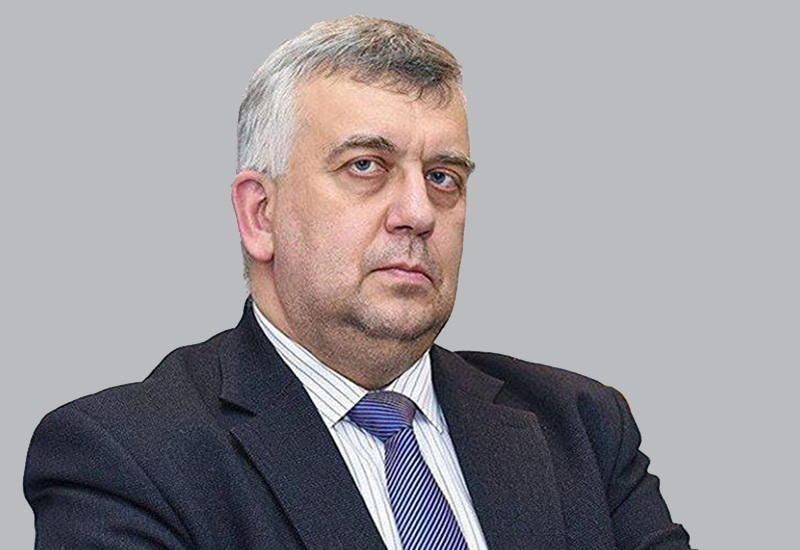Russian pundit: Wisdom of Azerbaijani leadership resisted widest international coalition

15 October was a significant day for the whole of Azerbaijan, President Ilham Aliyev raised the Azerbaijani flag in the city of Khankendi on the anniversary of 20 years of his service as President of the Republic of Azerbaijan. His magnificent, informative speech is both inspiring and reassuring. Azerbaijan has fully restored its territories, and the threats of separatism no longer exist. The West is closely watching and jealous of Azerbaijan's success and wants to interfere in the Caucasus in every possible way, looking for ways to unleash conflicts.
In his speech, the President reminded that 17 years of negotiations were meaningless, and Armenia would not give even an inch of land. Not a single country has supported Azerbaijan in the 100 years since the establishment of the 'Nagorno-Karabakh autonomy', which has no basis in Azerbaijan. All major powers have supported Armenia and today history has shown it once again.
According to Russian historian, and political scientist, professor Oleg Kuznetsov, who gave a comment for AZERNEWS, 15 October became a memorable day in the modern history of Azerbaijan, when President Ilham Aliyev raised Azerbaijani state flags in all major settlements of Garabagh.
"I will not be surprised if this day is declared another public holiday in the near future. Azerbaijan has proved that the will of the people multiplied by the wisdom of the leadership is able to work miracles and resist the widest international coalition. Azerbaijan has proved its self-sufficiency and viability as a full-fledged subject of international law through decades of persistent struggle for territorial integrity, which cannot be said about its neighbors in the South Caucasus region. Azerbaijani people have something to be proud of," the expert said.
The successes of the Azerbaijani leadership are encouraging, but there is a thorn in the face of the West and its close attention to the Caucasus, where the West wanted to undermine the authority of Azerbaijan at the international level, with its support for the separatist regime, indifference to Azerbaijan and its people that, despite the cold-bloodedness of the West, coped with all the problems on the way to today, the liberation of the occupied territories, with mass disinformation from the separatist clan. The West and state structures still have a grudge against the Caucasus and may wish to prevent the signing of a peace treaty between Azerbaijan and Armenia.
"I have carefully read the Russian translation of President Ilham Aliyev's speech on the occasion of his visit to Garabagh. In it, my attention was drawn to one circumstance that none of the Azerbaijani or foreign political analysts and experts had paid attention to."
The Russian pundit pointed that when the Azerbaijani President was speaking about the perspective of further relations with Armenia, in his speech he named 4 important issues that are yet to be solved - the state border, the opening of the Zangazur transport corridor, return of the remaining 7 villages under the jurisdiction of Azerbaijan and signing of the peace treaty.
"The signing of the peace treaty forms the sequence of these issues, which says a lot about the tasks of Azerbaijan's foreign policy in the near future. For 20 years of leading Azerbaijan, President Aliyev has tamed the whole world to the fact that he is a man of his word - what he says is what he does. That is why in his speech he essentially speaking in legal language made an offer, i.e. a public proposal to Armenian Prime Minister Pashinyan, in which he formulated steps to normalize Armenian-Azerbaijani relations, and if he persists in his non-acceptance of his position, we will most likely have to expect another operation to force Armenians to peace and good-neighborliness," the political analyst added.
It is important to recall that during the peaceful co-existence of Azerbaijanis and Armenians in Azerbaijan under the leadership of national leader Heydar Aliyev, strong propaganda was carried out from the West and France fuelling the conflict between the peoples. In 1987 Heydar Aliyev was dismissed from the post of the Bureau of the Communist Party of the Soviet Union, as well as the First Deputy Representative of the Council of Ministers of the Soviet Union, and after two weeks Armenian nationalists raised the issue of transferring the "Nagorno-Karabakh" autonomous region from Azerbaijan to Armenia. It was raised by an Armenian nationalist living in Moscow, and published in a French newspaper.
"The Western world or the collective West is now in such a state of overload with regional conflicts, in which it is involuntarily or voluntarily involved, that it is hardly capable today of providing Armenia, which is striving with all its might to embrace it, with any military and political assistance. Consequently, the intensity of the situation in the South Caucasus will only intensify in the short term. There are many more interesting events ahead of us," Kuznetsov stressed.
In conclusion, Russian political scientist importantly emphasized that the West's attitude towards Azerbaijan was formulated by the British back in 1918, at the time of the occupation of Baku by British colonial troops, which was unsuccessful.
"From that moment the Western countries perceived Azerbaijan exclusively as their petrol station, which once again found its confirmation in the plan in 1941 of the Vichy France government of Marshal Philippe Petain, an ally of Nazi Germany, to seize Baku after Hitler's attack on the Soviet Union. For the same purpose, Western countries, through the Armenian diasporas, supported and sponsored Armenia in its aggression against Azerbaijan in the 1990s. But instead of obediently becoming a semi-colony and raw materials appendage of Europe and America, it was planned by Azerbaijan's enemies.
Azerbaijan chose the path of independence in all spheres and won on this path. Striving for freedom, independence, and justice - these are the geopolitical dominants that today bring Russia and Azerbaijan closer in their vision of their place in the modern world, and that is why our countries are strategic allies on all geopolitical and macroeconomic issues," the expert underlined.
----
Abbas Ganbay is AzerNews’ staff journalist, follow him on Twitter:
---
Follow us on Twitter @AzerNewsAz
Here we are to serve you with news right now. It does not cost much, but worth your attention.
Choose to support open, independent, quality journalism and subscribe on a monthly basis.
By subscribing to our online newspaper, you can have full digital access to all news, analysis, and much more.
You can also follow AzerNEWS on Twitter @AzerNewsAz or Facebook @AzerNewsNewspaper
Thank you!

